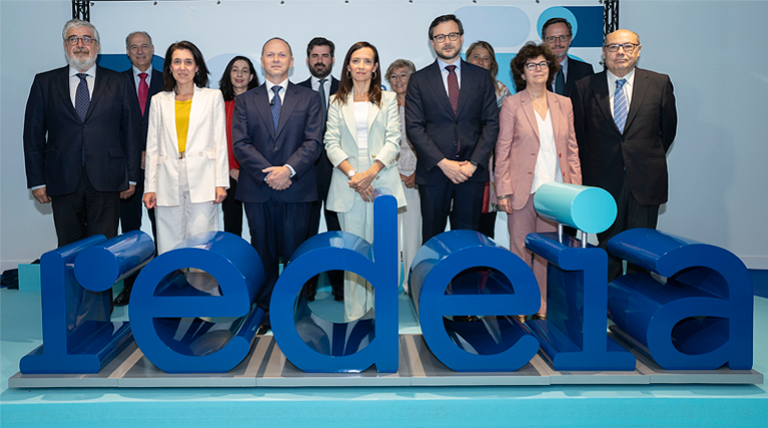We are a global operator of essential infrastructure
- The Redenor project enhances the electrical connection in the northern part of the country.
- Over $100 million has been invested in the project.
- The start-up involves three new transmission lines that connect the municipalities of Pozo Almonte, Alto Hospicio, and Arica, helping to consolidate the national electricity system.
Energy Minister Diego Pardow, surrounded by the main regional authorities and senior executives, officially announced the commissioning of the second phase of the Northern Electric Network Project (REDENOR). This project involved the construction of 276 km of new 220 kV power lines that connect the new Pozo Almonte substation to the ones in Cóndores, Pozo Almonte, and Parinacota.
This project, carried out by Redinter in collaboration with the Cobra Group, benefits over half a million people in the northern part of the country, representing a significant step in enhancing the national electricity system in Arica and Parinacota, as well as Tarapacá. It is a key infrastructure for the development and integration of renewable energies that are on the rise in these regions, providing clean energy to the rest of the country.
Energy Minister Diego Pardow highlighted the significance of such projects for the country's energy development: ‘The introduction of new electrical infrastructure is always excellent news for the country. We must keep improving in terms of transmission and infrastructure in order to complete the second phase of the energy transition. Furthermore, these new electrical lines are creating new job opportunities, which is crucial for the Tarapacá region. A just transition must always involve the communities.’
David Montero, Country Manager of Redinter, emphasised the positive impact of the commissioning of the second phase of REDENOR, both nationally and regionally: ‘The economic and social contribution of the project is very relevant, as it not only supports Chile's energy transition by serving as a connection point for different energy generation projects, but also enhances the security and quality of power supply in the northern part of the country.’
Montero also pointed out the value of this type of infrastructure, which requires a nationwide perspective. ‘These projects are like energy highways that are crucial for the country's development. There is no energy transition without infrastructure, and with this supply, we aim to be consistent with the challenge of being significant players in the industry.’
This major infrastructure project aligns with the Ministry of Energy's roadmap, which aims to decarbonise the electrical grid and includes input from several sector stakeholders to enable the progressive reduction of emissions in the electricity sector and the integration of clean energy.














